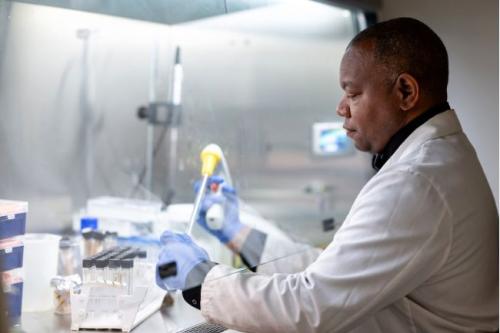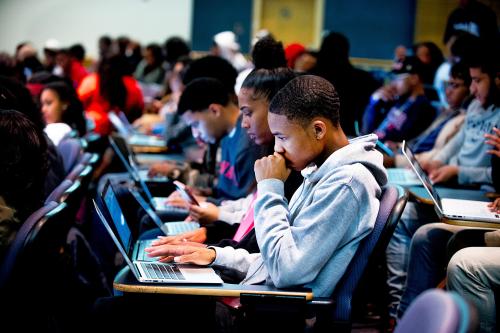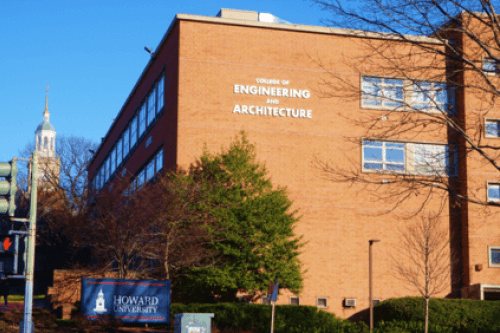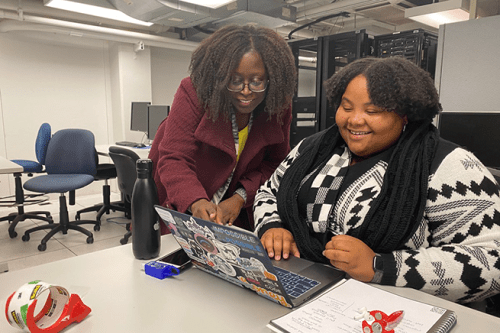After six years in the U.S. Coast Guard and a life-altering brain surgery, Irvin Antonio , a biology student and military veteran, found himself on an unexpected path: pursuing research at Howard University through the Amgen Scholars Program.
Launched in partnership with global biotechnology leader Amgen, the Howard Amgen Scholars Program offers historically excluded students hands-on research experience, mentorship, housing, stipends, and academic support. Howard is one of just 13 U.S. universities selected to participate in the prestigious international initiative. Scholars conduct research in fields ranging from neurobiology and pathology to biomedical and bioethics.
Howard University host 10 students as part of the Amgen Scholars cohort. Each participant receives on-campus housing, a research placement, structured mentorship, and a stipend for the 9-week residential summer research program.
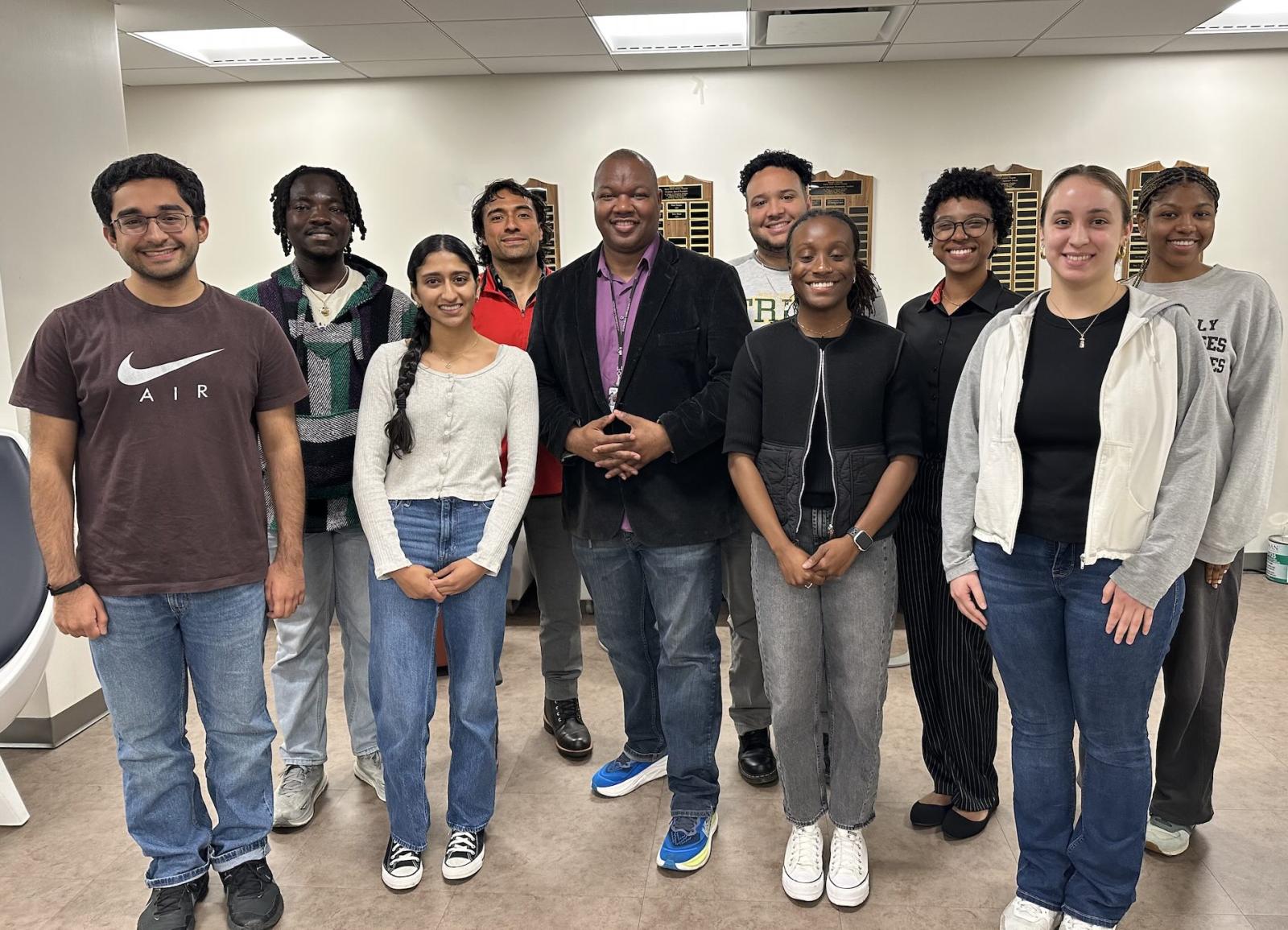
“Many of our students come from universities across the country,” said Ronald H. Smith, executive director of the Karsh STEM Scholars Program, who leads Howard’s Amgen initiative. “This program expands access to serious scientific training for undergraduates who want to grow as future researchers.”
He emphasized that the program provides not just top-tier facilities, but also mentorship, exposure, and a sense of belonging in science.
“Science is for everyone,” Smith said, “and institutions like Howard University are helping to shape the next generation of scientific leaders.”
Now 27, Antonio said the program has given him the undergraduate research experience he never thought possible as a nontraditional student. It’s also introduced him to a potential new professional path in scientific research.
“Before Amgen, I thought being a doctor was the only way to help people,” he said. “Now I understand the power of research.”
A highlight of the program was a recent lecture by Karl Thompson, Ph.D., an associate professor in the Department of Microbiology within the College of Medicine where he leads biomedical research training. In the talk, Thompson encouraged students, many aspiring to careers in clinical medicine, to broaden their view of science and its wider impact.
“Too often, students see medicine only through the clinical lens,” Thompson told the group. “But real impact often comes from the ‘bench’ — from those who study disease mechanisms, develop therapies, and ask deeper scientific questions.”
Thompson urged students to focus less on prestige and more on long-term impact — especially within underserved communities.
“It’s not about being the smartest in the room,” he said. “It’s about discovery, mentorship, and service.”

Junior Esteban De La Rosa Martinez, a senior at the College of William & Mary, said Thompson’s message resonated with him. Born and raised in the Dominican Republic, De La Rosa moved to Newport News, Va., at the age of 13. He found his path to science through language. As a certified medical interpreter in migrant clinics, De La Rosa has seen firsthand how cultural and linguistic gaps can affect patient care.
“The Amgen program makes that dream feel real,” said De La Rosa, who is studying biology and Hispanic studies and hopes to earn an M.D./Ph.D., like many of the other Amgen scholars. “It’s a place where I can explore both the scientific process and the social realities that shape health outcomes.”
This summer at Howard, De La Rosa is studying gene mutations in the DNA repair gene MSH3 — mutations found in African American populations — and learning advanced techniques like CRISPR and gene cloning.
MaKyra Wilson, a junior at Spelman College, said she long viewed science through a medical lens but is now thinking more deeply about its broader societal impact. This summer, she’s working in Anna Allen’s biology lab, studying reproductive gene mutations in microscopic organisms. Originally from Raleigh, N.C., and on the pre-med track, Wilson hopes to address racial disparities in medicine while advancing discoveries in genomics.
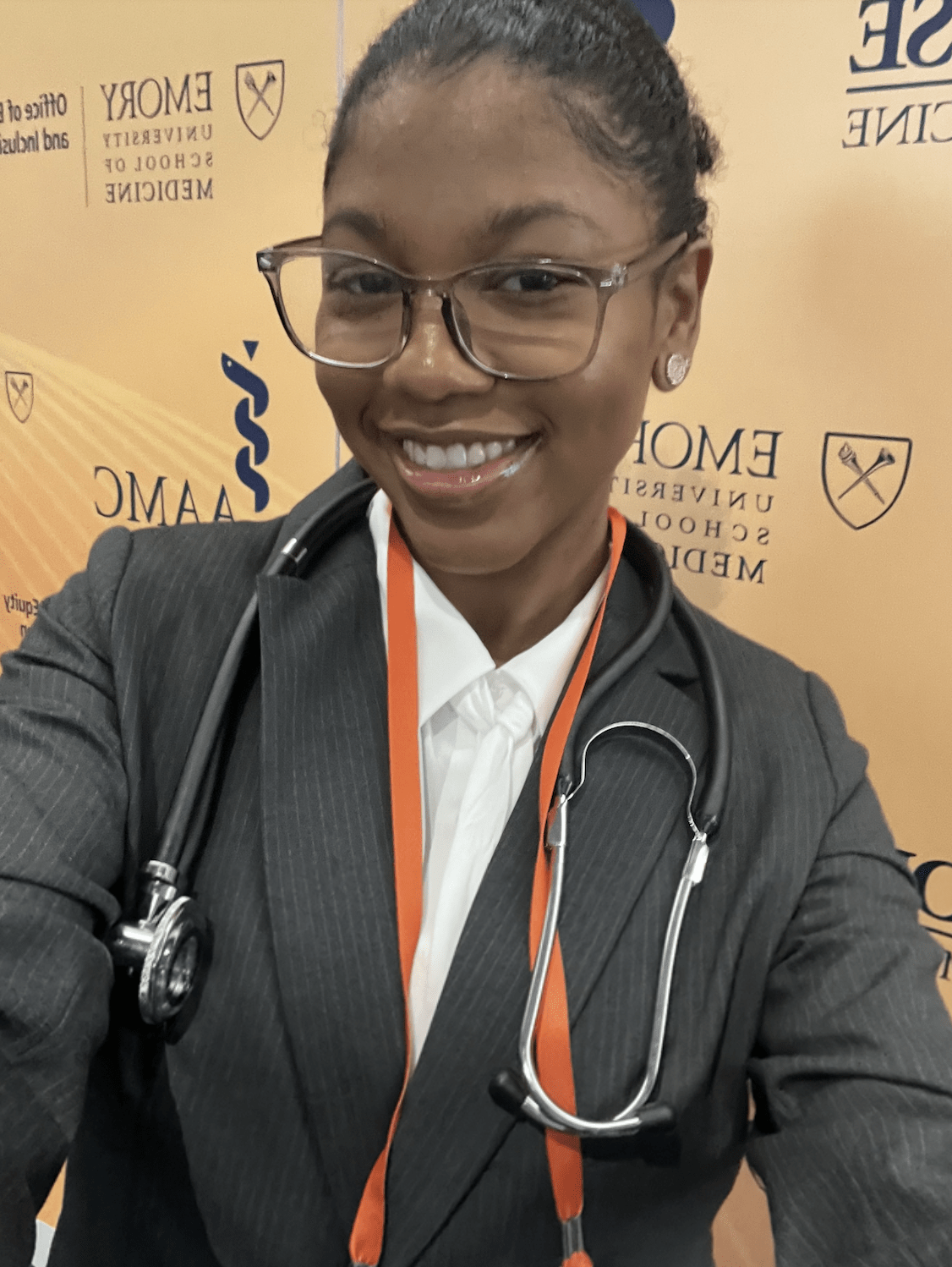
“The Amgen program is helping me understand what it really means to think like a scientist,” she said. “That’s something I’ll carry into every part of my future.”
The shift in perspective was also shared by Antonio, who began the program focused on his ambition to become a doctor. His journey into science began after suffering a traumatic brain injury in 2021, which led to emergency surgery at Howard University Hospital. He described the road to recovery as grueling — relearning how to walk, speak, and perform basic daily tasks.
“Amgen showed me the ‘bench side’ of medicine,” he said. “It’s expanded how I see the possibilities.”
Antonio also hopes that more institutions will welcome students like him — veterans, second-degree seekers, and late bloomers. “Not all Amgen sites accept students like me,” he said. “Howard University did. And it’s made all the difference.”
###



